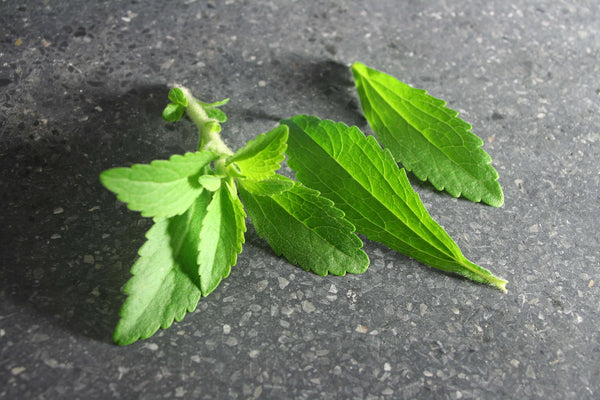According to legends, a long time ago foods were eaten solely to stay healthy - just like medicine. Centuries later more than a means to stay healthy, it became a means to sooth our taste buds.
Chewwies choose to let you know which of two identical natural sweeteners, Stevia and Truvia, is the perfect pick for your health. We'll look at their makeup, similarities, and differences.
Stevia
This is often referred to as the sweet harbinger of nature. It comes from the vibrant leaves of the Stevia rebaudiana plant.
Stevia is an enchanting plant with astonishingly low-calorie.
Long before anything was known about stevia, the indigenous people of South America were already using it to sweeten their tea. Even without knowing its health benefits.
Stevia remains the perfect option for a guilt-free symphony of flavour. Looking for something just as sweet and healthy? Some multivitamin gummies are made just like that.

Truvia
Truvia on the other hand, combines both science and nature. It is a tantalising blend of flavours. Crafted from the nectar of stevia's leaves and the extremely sweet erythritol.
Since it's made from stevia, it comes with the same delectable and healthy treats. So it's safe to say both take your taste buds on a journey where indulgence meets well-being.
Similarities between stevia and truvia
Stevia and Truvia, though distinct entities share several striking similarities. Some of them are in terms of;
- Origin
- Minimal calorie content
- Blood sugar impact
- Both sugar substitutes
- Flavour range
- Diverse applications
In essence, Stevia and Truvia mirror each other. Their shared commitment to enabling guilt-free indulgence makes them delectable allies.
Perhaps someday scientists would find a way to add some of the best vitamins for kids and adults into these sugars.
Difference between stevia and truvia
Some of their differences include;
Stevia is derived directly from the leaves of the Stevia rebaudiana plant. Its sweetness comes from naturally occurring steviol glycosides.
These compounds are extracted through a process that involves drying and steeping the leaves.
It is further purified to obtain the sweet components.
On the other hand, truvia is a branded sweetener. It blends a purified form of one of the steviol glycosides (rebiana) with erythritol, a sugar alcohol. Erythritol gives Truvia its sugar-like texture, while rebiana brings sweetness.
Taste profile
Pure stevia extract often has a herbal or slightly bitter aftertaste that some people find a bit unpleasant. It varies depending on the specific brand or formulation.
Truvia is crafted to provide a taste profile that closely mimics that of sugar. The added erythritol removes any bitterness that may be linked with stevia. Hence, Truvia has a taste that is more similar to traditional sugar.
Amount of calories
Pure stevia extract is virtually calorie-free, as it is not metabolised in the same way as sugar.
While trivia is also low in calories, the addition of erythritol brings a few calories to the final product.
Processing and manufacturing
The processing of stevia involves harvesting, drying, steeping, and purifying the leaves to extract the sweet compounds. The final result is a natural sweetener that remains close to its botanical source.
The production of truvia is a more refined process. This process involves the isolation and fermentation of erythritol and the extraction of rebiana.
Potential health effects
Due to its direct extraction from the stevia plant, it is often considered a more "natural option". Some studies suggest potential health benefits, including anti-inflammatory and antioxidant properties, but more research is needed.
Truvia is a blend of natural and processed components. While the erythritol in Truvia is generally recognized as safe, some individuals may experience gastrointestinal discomfort when consuming sugar alcohols like erythritol.
Just like eating too many gummies have side effects, while both Stevia and Truvia are generally considered safe for most people, moderation is key.

Conclusion
The Stevia vs Truvia debate showcases two distinct options for reducing sugar intake. So while stevia, derived directly from the leaves of the plant, offers a natural herbal sweetness with minimal calories.
Truvia, a stevia-derived sweetener, combines erythritol and rebiana to mimic the taste and functionality of sugar. Each has its unique attributes, making it crucial for consumers to weigh their options properly before making their choice.


